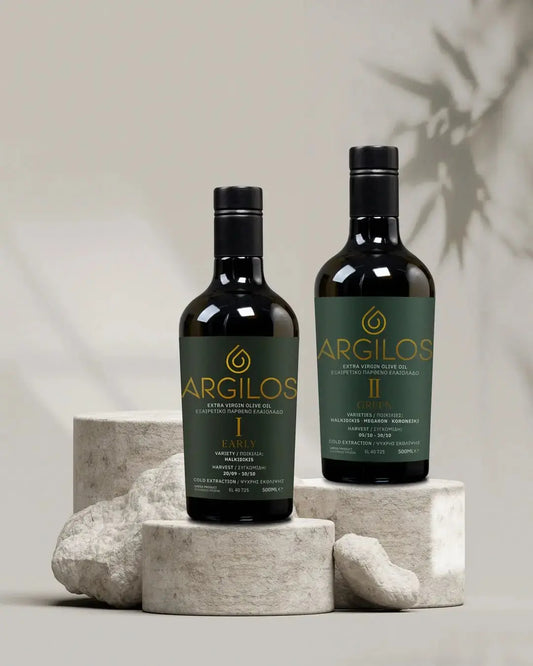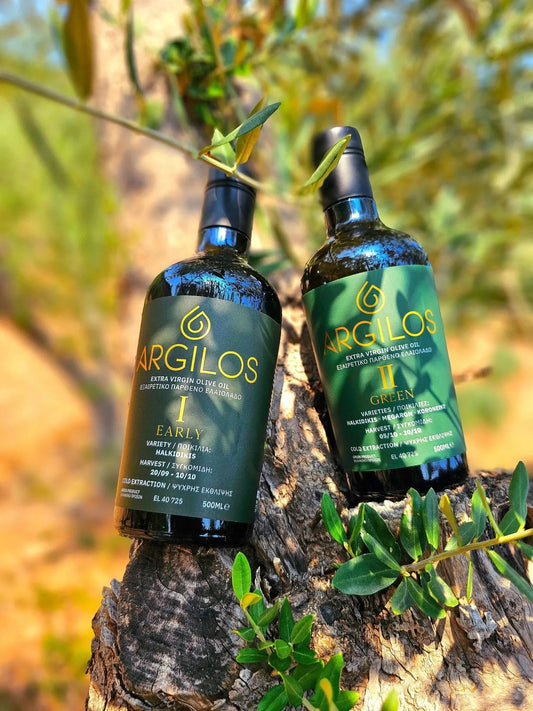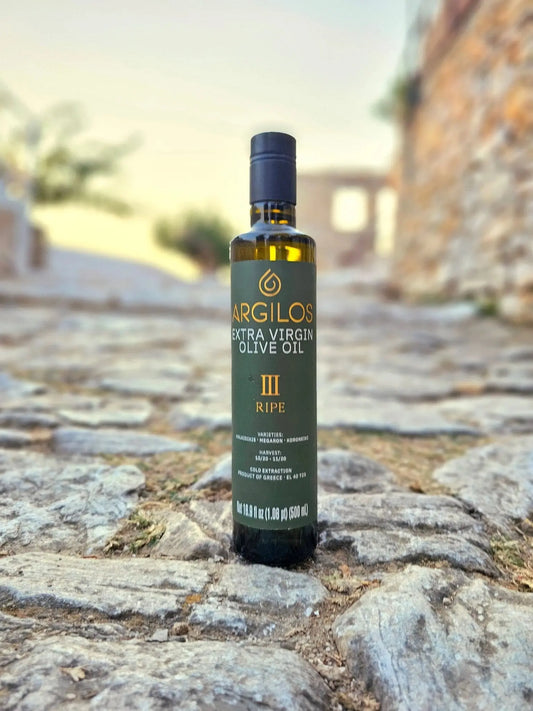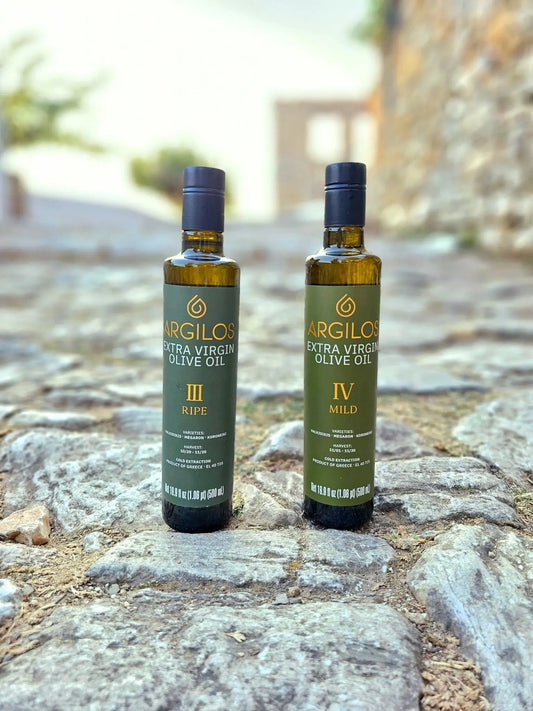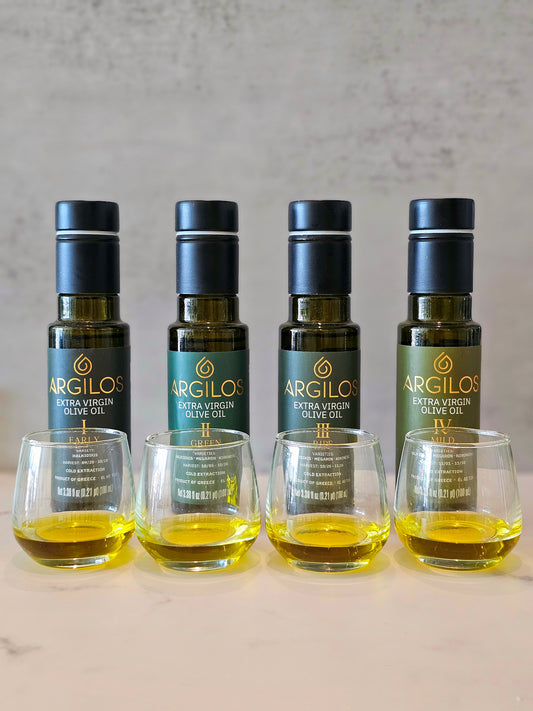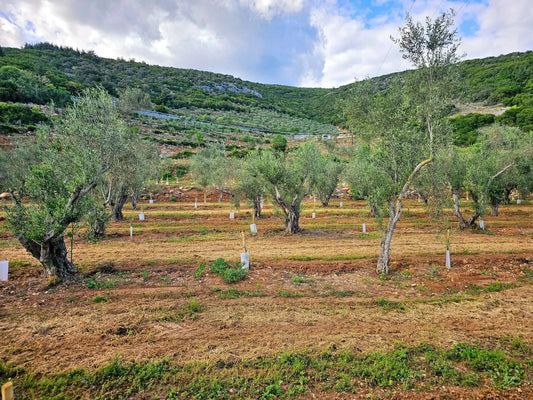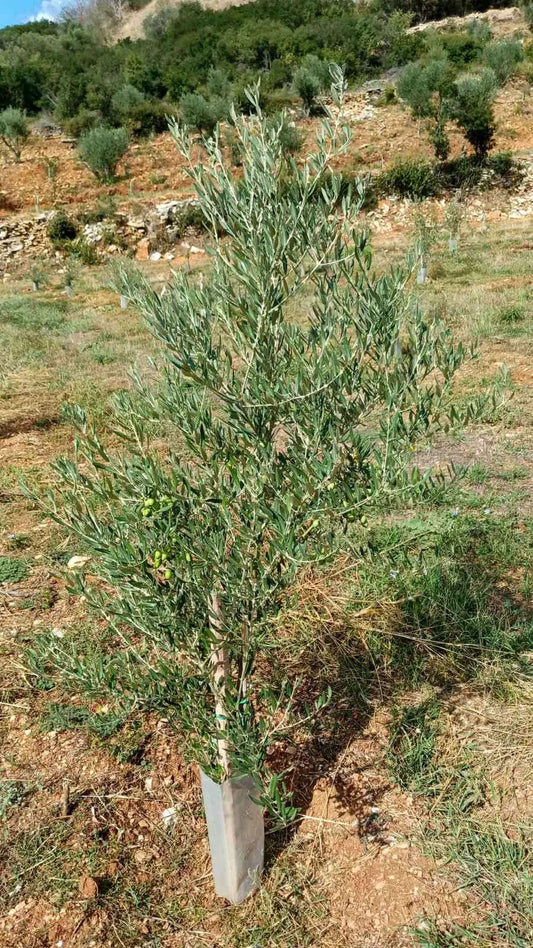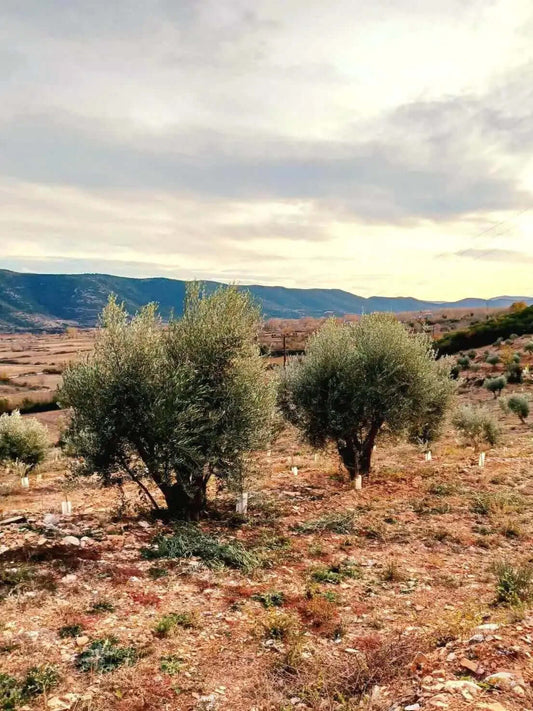Greek Mythology's Sacred Olive Tree Tales
Share
The Sacred Olive Tree in Greek Mythology
Greek mythology weaves a rich tapestry of divine narratives that continue to captivate our collective imagination. Among these ancient tales, the sacred olive tree emerges as a recurring motif of profound significance. The olive tree, with its gnarled trunk and silvery leaves, transcends mere botanical categorization to embody divine gifts, celestial disputes, and the foundation of Greek civilization itself. This venerable tree, whose fruit yields liquid gold in the form of olive oil, held an esteemed position in the pantheon of Greek mythological symbols.
The mythological narratives surrounding the olive tree illuminate not merely ancient beliefs but reflect the Mediterranean people's profound connection to this agricultural cornerstone. These sacred stories reveal how the olive tree became intertwined with concepts of wisdom, peace, and prosperity—values that continue to resonate in contemporary society.
Athena's Gift: The Divine Origins of the Olive Tree

Perhaps the most celebrated mythological account involving the olive tree centers on the divine competition between Athena and Poseidon for patronage of Athens. This epochal contest would determine which deity would become the city's divine protector and namesake.
The Contest for Athens
According to mythological accounts, Poseidon and Athena both coveted the patronage of the nascent city of Athens. To resolve this celestial dispute, Zeus decreed that each deity should present the citizens with a gift, and the provider of the more beneficial offering would claim the honor. On the sacred rock of the Acropolis, Poseidon struck the ground with his trident, causing a saltwater spring to emerge—symbolizing naval power. Athena, with thoughtful deliberation, knelt and planted the first olive tree, which immediately flourished with silvery leaves and abundant fruit.
The citizens, recognizing the manifold benefits of Athena's gift—food, oil for lamps, wood, and medicine—declared her the victor. Thus, the olive tree became inextricably linked with Athena, goddess of wisdom and strategic warfare, and the city adopted her name: Athens.
"From Athena's wisdom sprang not merely a tree, but the foundation of Athenian civilization—a gift that nourished both body and mind, illuminated homes, and healed the afflicted."
The Olive Tree in Ancient Greek Society
Beyond its mythological significance, the olive tree profoundly influenced quotidian existence in ancient Greece, permeating every aspect of society from economics to spirituality.
Symbol of Peace and Prosperity
The olive branch emerged as a universal emblem of peace throughout the Hellenic world. Envoys seeking peaceful resolutions would carry olive branches, signifying their non-belligerent intentions. During the ancient Olympic Games, victorious athletes received crowns fashioned from olive branches harvested from sacred trees, symbolizing both achievement and harmony. This tradition underscores the veneration with which Greeks regarded the olive tree—a living manifestation of divine benevolence and human accomplishment.
Archaeological evidence reveals the economic centrality of olive cultivation in ancient Greek society. Amphorae decorated with olive motifs have been unearthed throughout the Mediterranean basin, testifying to the extensive trade networks built upon olive oil commerce. The olive tree thus represented not merely mythological significance but tangible prosperity.
Lesser-Known Olive Tree Myths
While Athena's gift dominates olive tree mythology, numerous lesser-known narratives demonstrate the tree's pervasive presence in Greek cosmology and folklore.
Odysseus and the Olive Tree Bed

In Homer's "Odyssey," the olive tree serves as a powerful symbol of constancy and marital fidelity. Upon returning to Ithaca after twenty years, Odysseus must prove his identity to his faithful wife Penelope. He describes the immovable bed he constructed for their marital chamber—ingeniously carved from a living olive tree that remained rooted in the ground. This arboreal foundation of their marriage symbolizes the unshakeable nature of their bond, withstanding decades of separation and uncertainty.
The olive tree bed represents more than clever craftsmanship; it embodies the enduring nature of true love and familial bonds—roots that remain steadfast despite tempestuous circumstances. This mythological detail exemplifies how olive trees represented permanence and continuity in Greek cultural consciousness.
The Olive and the Deluge
Another significant olive tree myth parallels the more familiar biblical narrative of Noah's ark. In Greek mythology, Deucalion and Pyrrha survive a great flood sent by Zeus to purge humanity of its wickedness. As in the biblical account, the receding floodwaters are marked by an olive branch—a symbol of divine reconciliation and renewed life. This mythological convergence across disparate cultural traditions underscores the universal significance attributed to the olive tree as a symbol of resilience and renewal.
The Symbolism of Olive Oil in Greek Rituals
The precious golden liquid extracted from olives held sacred status in ancient Greek religious and social practices, serving functions both practical and symbolic.
Anointing the Sacred
Olive oil featured prominently in religious ceremonies throughout ancient Greece. Priests would anoint sacred objects, statues of deities, and even individuals participating in mystical rites with this liquid embodiment of divine blessing. Athletes would coat their bodies with olive oil before competition, both for practical purposes and as a form of ritual purification. This practice transcended mere physical preparation to become a spiritual communion with the divine forces believed to inhabit the sacred olive.
In funerary practices, olive oil assumed poignant significance. The deceased would be anointed with oil as part of preparation rites, symbolizing purification for the journey to the underworld. Mourners would leave offerings of olive oil at tombs, sustaining the connection between the living and the departed through this sacred substance.
Contemporary Relevance of Olive Mythology
The mythological heritage of the olive tree continues to resonate in contemporary culture, influencing everything from artistic expressions to modern values.
From Ancient Wisdom to Modern Sustainability
Today's renewed appreciation for olive oil's health benefits and sustainable agricultural practices echoes the ancient Greek reverence for Athena's gift. The olive tree's ability to thrive in arid conditions with minimal irrigation makes it an exemplary crop for sustainable Mediterranean agriculture—a growing concern for environmentally conscious consumers.
| Ancient Value | Modern Interpretation |
|---|---|
| Divine wisdom (Athena) | Scientific understanding of olive oil's health benefits |
| Economic prosperity | Sustainable agricultural practices |
| Peace symbol | Environmental harmony and conservation |
For today's eco-conscious millennials and Gen Z consumers, products like Nostos Goods' Argilos Extra Virgin Olive Oil represent more than culinary ingredients—they embody a connection to ancient wisdom and sustainable practices. The cold-pressing techniques employed within hours of harvest echo traditional methods while incorporating modern understanding of how to preserve the oil's beneficial polyphenols and distinctive flavors.
The Enduring Legacy
The mythological narratives surrounding the olive tree continue to infuse this ancient crop with meaning beyond mere agricultural significance. When contemporary consumers select olive products with traceable origins—such as those from Mount Pangaion in Kavala, Greece—they participate in a tradition extending back to antiquity.
Frequently Asked Questions About Olive Mythology
- Why did the ancient Greeks consider the olive tree sacred?
The olive tree was considered divine due to its association with Athena and its multifaceted contributions to Greek society—providing food, oil for light, wood, and medicine. - What other Greek deities were associated with the olive tree?
While Athena had the strongest connection, Apollo was also associated with the olive, and Zeus himself was said to have planted sacred olive trees at Olympia. - How did olive oil feature in ancient Greek athletic competitions?
Athletes would anoint themselves with olive oil before competition, and victors in the Olympic Games received crowns made from olive branches harvested from sacred trees.
As we contemplate these ancient narratives while drizzling golden olive oil over our meals, we participate in a cultural continuum spanning millennia. The myths of Greece's sacred olive trees remind us that some gifts—whether from deities or nature—transcend time, continuing to nourish both body and spirit in our contemporary world.


